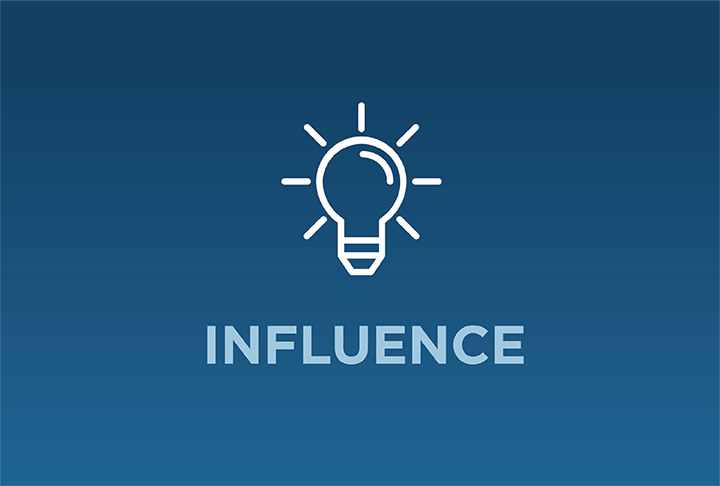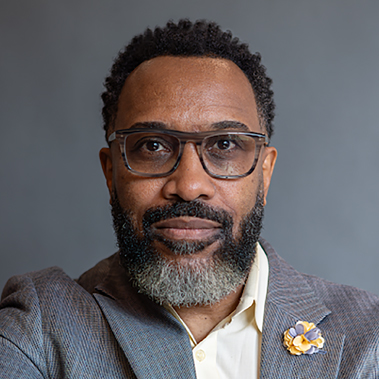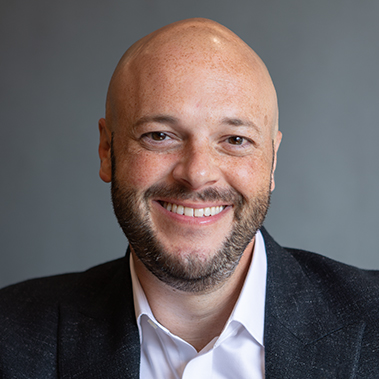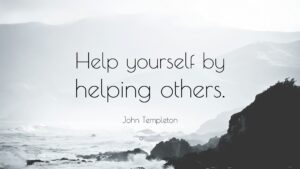 I am sure you have heard this before – “Find your purpose at work and you will like your job more!” You may not love every single aspect of your job. However, if you can find how your work is directly linked to helping others – the 3 Cs: customers and/or clients and coworkers – I guarantee that you will find a greater sense of purpose when you are working those 40+ hours a week. Helping others directly improves your self-esteem and your sense of purpose. The science shows that people who volunteer their time, donate to a cause they care about, or aid someone in need of assistance have higher self-esteem and overall well-being (Journal of Counseling Psychology, 2020).
I am sure you have heard this before – “Find your purpose at work and you will like your job more!” You may not love every single aspect of your job. However, if you can find how your work is directly linked to helping others – the 3 Cs: customers and/or clients and coworkers – I guarantee that you will find a greater sense of purpose when you are working those 40+ hours a week. Helping others directly improves your self-esteem and your sense of purpose. The science shows that people who volunteer their time, donate to a cause they care about, or aid someone in need of assistance have higher self-esteem and overall well-being (Journal of Counseling Psychology, 2020).
Challenge
We tend to look too much at our day-to-day tasks instead of the bigger picture. Take the job of a roofer, for example. Yes, he/she is replacing shingles, fixing leaks, and climbing up tall ladders to fix storm damage. Yet, think about the big picture – he/she is providing shelter for families, allowing kids to have dry playrooms during rainstorms, and allowing mothers to rock their babies to sleep at night listening to the soft sound of water on the roof. Now, if I was a roofer, I bet I would like my job more if I thought about it like that!
How can you look at your work through a different lens and see how you are helping others? If you thought about how you and your work are directly adding value to other people, do you think you would like your job more? Let me show you how.
Psychological Principle
Human beings have an instinct to help others. We donate blood, we stop to help a stranger who has been stranded on the highway, we volunteer at a homeless shelter or donate to a charity, and we help a co-worker when he/she is having a tough day. Adam Grant, organizational psychologist at Wharton University, found that in sales, the most productive salespeople are actually those who put their customers’ interests first. He says, “A lot of that comes from the trust and the good will that they have built, but also, the reputations that they create.”
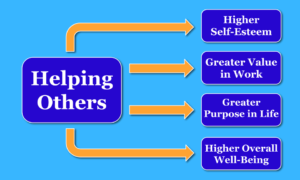 As parents, we pray that our children want to help others because it is the “right thing to do.” Psychologists call this “The Social Responsibility Norm.” Great leaders want their followers to do the same thing. The social responsibility norm tells us that we should try to help others who need assistance, even without any expectation of future paybacks.
As parents, we pray that our children want to help others because it is the “right thing to do.” Psychologists call this “The Social Responsibility Norm.” Great leaders want their followers to do the same thing. The social responsibility norm tells us that we should try to help others who need assistance, even without any expectation of future paybacks.
However, behind the scenes, we do indeed get a personal benefit – we find more purpose and value in our work and in our lives.
Mindset Shift
- Ask yourself these questions: “How am I helping others?” “How does my work add value?” “Am I doing the right things at work to offer the most value to others?”
- When you have a bad day at work, try to think about how your work is helping someone out there. I bet you will feel a bit better.
Performance Shift
- If you think you can add more value at work but not really sure how, talk to your manager or talk to Chris for some help! Don’t just add more work to your plate. A Gallup poll revealed that almost 50% of employees don’t know what their managers expect of them.
- Some companies have limited or no official job descriptions at all. Then there are roles where most of the items on your job description are outdated, while the tasks you’re responsible for aren’t even on the list. It can be confusing to figure this out on your own. No wonder it is hard to find value at work – you might not even know what you are supposed to be working on!
- Ask your employees to consider what would happen (the impact) if they didn’t do their job? What would be lost?
If you’re not 100% sure what’s expected of you, you should talk to your manager first before trying to add more to your plate. Ask your boss to help you figure out what jobs and tasks are the top priority – which ones are providing the most value to others.
If your manager is just as confused or clueless about your role, then it’s even more important that you talk things through.
Here at Chris Flickinger Consulting, we show managers and leaders how to move their employees from merely going through the motions to ultimately understanding the greater meaning of their work. If you want to learn more about how your work can add more value and explore better ways to be productive, reach out to Chris!
Follow Chris on Social Media!
Co-Authored By: Betsy Moore, Industrial/Organizational Psychology Consultant & Health Coach


